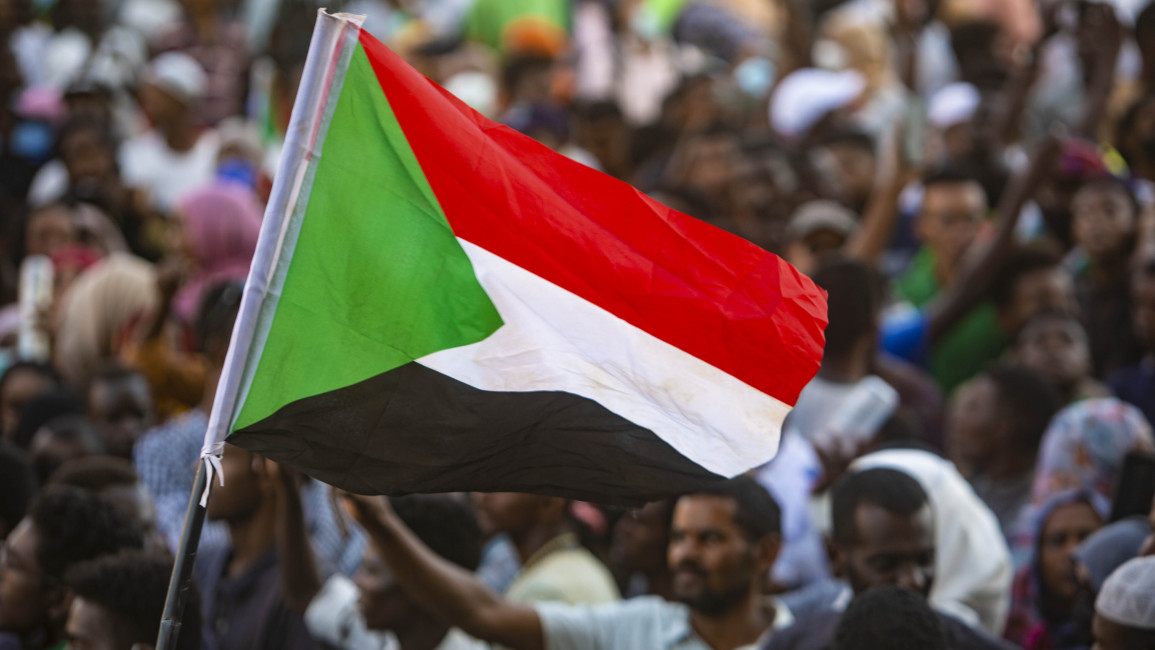Three killed as defiant Sudanese march against military coup
Sudanese security forces on Saturday killed three protesters during mass anti-coup rallies, medics said, despite warnings from global powers who had urged the military to exercise restraint.
"Two demonstrators were killed in the city of Omdurman by the putschist military council," the independent Central Committee of Sudan's Doctors said in a tweet, adding that one was shot in the head and the other in the stomach.
It later said security forces had shot dead a third protester, also in Omdurman, Khartoum's sister city.
Forces "have fired live rounds at protesters in Omdurman" and areas in the capital, the medics said.
More than 100 people have been wounded in the violence or have suffered breathing difficulties due to tear gas, the committee added.
The latest killings bring the death toll since the outbreak of anti-coup protests on Monday to 12.
Sudan's interior ministry slammed reports of killings on Saturday as "inaccurate" and denied forces had used live rounds.
"Groups of protesters... attacked the police, as well as vital sites, which prompted the police to fire tear gas," the ministry said in a statement.
An AFP correspondent said tear gas was fired at other protests on the eastern banks of the Nile in Khartoum.
Saturday's demonstrations came almost a week after the military on Monday detained Sudan's civilian leadership, dissolved the government and declared a state of emergency, leading to a chorus of international condemnation - and warnings against using force.
"No, no to military rule", and "We are free revolutionaries and we will continue the road" of democratic transition, protesters carrying Sudanese flags chanted in Khartoum.
Despite bloodshed throughout the week, organisers on Saturday aimed to stage a "million-strong" march against the military's power grab, similar to mass protests that led to the toppling of autocrat Omar al-Bashir in 2019.
Don't back down
Demonstrations took place throughout Khartoum state as well as in the eastern regions of Gedaref and Kassala, and the Red Sea city of Port Sudan, witnesses and AFP correspondents said.
Protests also broke out in the central state North Kordofan, and White Nile state in the south, according to witnesses.
"We want civilian rule... It has to be civilian 100 percent," said Hashim al-Tayib, a protester in southern Khartoum.
Sudan had been led since August 2019 by a civilian-military ruling council which was supposed to last three years and lead to full civilian rule.
The arrangement came under increasing strain prior to the coup, which analysts said aimed to maintain the army's traditional control over the northeast African country.
"Though I have reservations on the performance of Hamdok's government, there is no substitute for it," said protester Hagar Youssef from east Khartoum. "Sudan has had enough of military rule."
Protesters held posters of Prime Minister Abdalla Hamdok, ousted by the military and effectively held under house arrest, with slogans saying, "Don't back down."
In east Khartoum, protesters burned tyres and held posters reading, "It's impossible to go back", while in the city's southern district banners expressed concern that the country might return to Washington's state sponsors of terrorism list.
That designation, accompanied by years of crippling sanctions, was lifted only last December, opening the way to debt relief and renewed largesse from the International Monetary Fund and World Bank.
After the coup, the World Bank suspended aid to Sudan in a heavy blow to a country already mired in a dire economic crisis that began under Bashir.
Other protesters called for "freedom to the members of cabinet" who have been detained since the putsch.
Several pro-democracy activists have also been arrested following the takeover led by General Abdel Fattah al-Burhan, Sudan's de facto leader since the ouster of Bashir which came at the cost of more than 250 lives.
Warnings on violence
Officials from the United Nations, the US and Britain have urged security forces to refrain from violence and show "restraint".
"The security services and their leaders will bear responsibility for any violence towards any protesters," said Robert Fairweather, Britain's special envoy for Sudan and South Sudan.
Read also: Sudan's foreign minister says country 'under arrest' since coup
Security forces had deployed in large numbers and blocked bridges to Khartoum.
Before the protests began, Sudan's information ministry, which backs a civilian government, warned that coup authorities were planning to engineer "instances of destruction to justify its excessive violence".
Protesters during the week had, in some cases, already been met with tear gas, rubber-coated bullets and live rounds.
Shops have largely been shuttered, and government employees have refused to work as part of a campaign of civil disobedience.
Prior to Saturday's rallies, Sudan state TV aired testimonies from military men alleging that protesters wounded them during clashes, and showed ordinary Sudanese hailing the army.
Burhan, a senior general under Bashir's three decades of iron-fisted rule, has insisted the military takeover "was not a coup" but only meant to "rectify the course of the Sudanese transition".
One of the world's least developed countries, Sudan has enjoyed only rare democratic interludes since independence in 1956 and spent decades riven by civil war.



